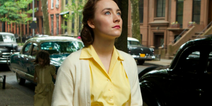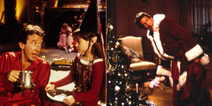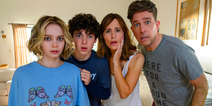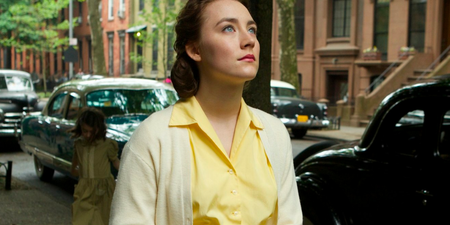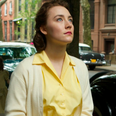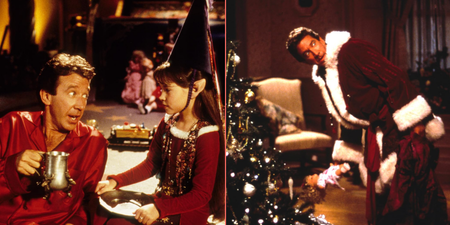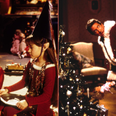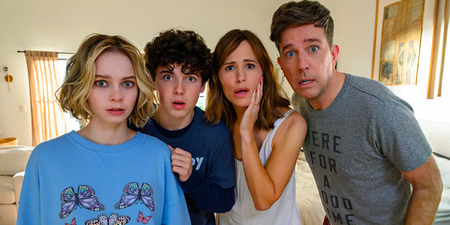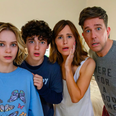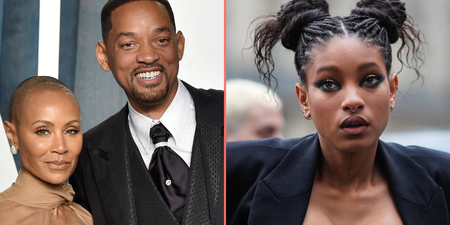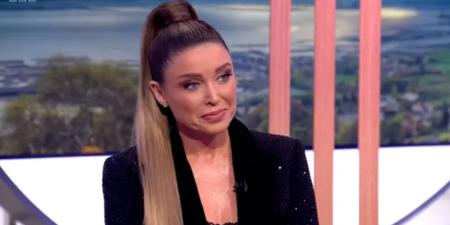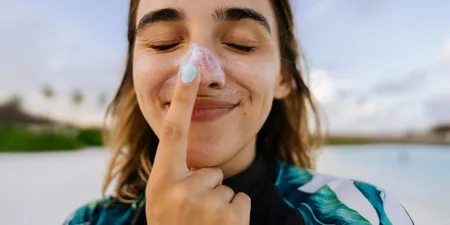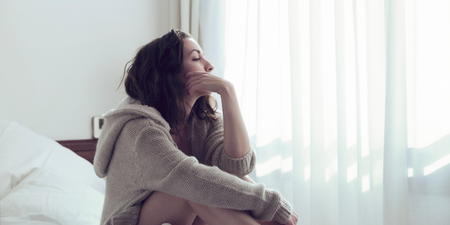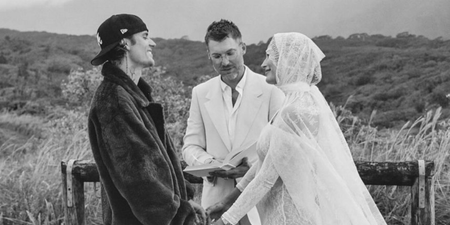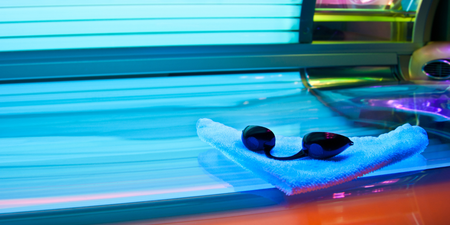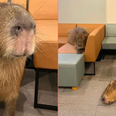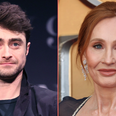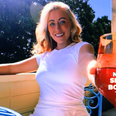Grainne Humphreys is the director of the Jameson Dublin International Film Festival. She spends her time travelling to the world’s top festivals before putting together a programme for the event in Ireland’s capital city.
At the moment she’s busy getting ready for the 13th Jameson Dublin International Film Festival which kicks off on March 19th (it’s guaranteed to be a cracker).
Tell us a little about your job…
I have a fantastic job. I get to programme one of the most exciting film festivals, definitely in Ireland and I think beyond, which involves watching about 1200 films a year and travelling to different festivals, usually about two a month for about 10 or 11 months of the year. And then I knuckle down and pull it altogether over about 12 days each spring. The artistic way of saying it is like trying to catch butterflies with a big net and then the other slightly more prosaic way is like someone trying to land at Heathrow. I basically try to fit about 140 films into seven venues across the city within those days and trying to get the guests to line up in a coordinated sort of structure.
It’s fun. It’s a complete adrenaline rush from the actual start when you see a new film. It’s genuinely exciting, that moment when the lights go down and you’re sitting there thinking anything can is possible. That’s part and parcel of what I do for 12 months of the year and then the festival comes and it’s so lovely to bring someone’s film that you saw to Dublin and see them get the lovely response from Irish audiences. And then the circle starts again.
How did you get to your current position?
It all started when I was in a school and decided that I wanted to be a film critic. I actually snuck out of school to go to the film festival in the mid-80s and got to know a lot of the film critics and volunteers. I was in college when I got into programming. I was lucky enough to get a job pretty much as soon as I got out of college, from the volunteering that I’d done, at the Irish Film Institute or the IFC as it was known back then. I worked there for 13 years programming festivals and then I came to the Dublin Film Festival in 2007 so this will be my eighth festival. It’s really nice because, for me, one of the things that’s lovely about it is that Dublin is such a small city so there’s a lot of familiar faces from audiences to filmmakers to distributors. It does feel like it’s a film festival that does have that kind of intimacy. It’s not like Cannes or Toronto which are these huge sort of monoliths that don’t really allow film fans to really meet their favourite actors or directors.

Kim Cattrall is one of this year’s guests.
What is your typical working day?
There’s no such thing but that’s probably the reason I really like it. I mean there’s a couple of traditional ones. If I’m at a film festival, you start your day around 7.30am and start your first film at 8.30am. You usually get about five films in before you call it a day and you’re trying to squeeze some meetings in there as well. There is definitely a perception that we all hang out on yachts and I would love to able to say that that’s what it’s like but I have never been on a yacht, which is obviously my own fault! You do spend a lot of time in hotels and airports. You try to see about 50 films at a festival, as many as you can, but also chatting to people and writing down notes.
It’s a bit like being at the races, trying to find out what’s the one you should see on a particular day. Then you have to ring up and see if a particular person can be there on a particular day and once we launch the programme, one of the nicest things is that all of the secrets that I’ve been hiding for eight months can finally get released and from then on it’s a different type of rollercoaster – it all becomes about making sure that you can run from one cinema to another and looking after guests. That’s fantastic because throughout the year you’re on your own at festivals but when you’re presenting the actual event it’s just people all the time and I love when you’re walking down O’Connell Street and three people say ‘I loved that film.’ Film is an art form that people watch and enjoy together.
Why did you choose your current career?
I’m really lucky. I’m not quite sure I chose it. I was in college in 1989 and I wanted to be a film critic. It was at a time when a lot of people were leaving and the arts was kind of flourishing but it was a small community. It’s been fun, it’s very exciting and it constantly changes. In the 20 years that I’ve been working, there’s been Oscars handed out to Irish films, there have been wins in Cannes, there’s a range of actors and directors that have made their names. We’ve got fantastic animation. It’s kind of been really exciting to work in film. What was a very small community when I started working is fairly significant now.
What are the biggest challenges you face in your career?
I think the difficulty to make sure the way in which press and media is becoming increasingly conservative is making it harder to get really difficult, really challenging foreign language films out there. We don’t live in an English language world but because of things, including the success of the American industry, it’s easy to forget that there is a world cinema and it’s fantastic. The challenge for me is to keep that balance there and being able to excite audiences about unknown filmmakers. The other thing is that it always changes, it’s never the same. Audiences change. Passions change. As much as it’s a challenge and an opportunity, it’s always different.

Grainne with Danny DeVito.
What are the most rewarding aspects?
To be honest, and it sounds corny, there are certain moments. I’m standing at the back of the cinema usually and you can just see the atmosphere change in the cinema. I don’t make films. I’m just somebody who helps certain films get to audiences in Dublin so when you feel like you’ve been able to bring something that really makes an impact it’s fantastic. And then it’s over. You have that powerful moment and then you move on. Another one is a filmmaker being shocked when they get a standing ovation or someone like Danny DeVito stopping halfway down the aisle and saying ‘Oh no, we’ve got to watch this. This is my favourite scene.’ Film is emotional and it creates an impact. I love that.
Could you ever see your work taking you away from Ireland?
There are film festivals all over the world but Dublin is a very special festival and it’s got a very broad remit. I like the mixture you have with it so potentially, but it would take something special to make me go.
What is the best piece of advice that you’ve been given?
Honestly, every artist sets out to do their best. I think one of the things I’m always worried about in film is cynicism and I think the idea that it is purely commercial is maybe true but I don’t like to think about it like that. I like to think that everyone starts off with relatively pure intentions and that what you watch is someone trying to make the best they can. When you’re talking about world cinema, I think there are. They’re making very personal, very powerful films. It’s about making an impact. So I’d say that… and bring supplies in case it’s a particularly long film!

The festival is in its 13th year.
What has been the one ‘pinch me’ moment of your career so far?
Al Pacino came a couple of years ago and we went and had a cup of tea and talked about Oscar Wilde. He was kind of nervous about showing his film and I couldn’t believe that I was sitting talking to him about how the audience would respond. The other one was really funny, when I was at a film festival in France and I met Clint Eastwood. I don’t know why but I couldn’t get over that he spoke like Clint Eastwood. He said my name and I couldn’t commute that. I’m incredibly professional but seeing someone of that status and stature, I just wasn’t quite sure I was in that conversation!
What do you think is the biggest misconception about what you do?
The yachts. It’s funny because you try to downplay it but when you say Cannes, people think that you’re sitting drinking champagne on a yacht. But you’re actually up at 7.30am, standing in a queue to see a film at 8.30am and you’re probably going to be stand in another queue at 10.30pm that night. And you live on cheap baguettes and cheap wine. I love it and I wouldn’t change it but it makes me so amused when people think and say that’s what we’re doing.
What is the biggest mistake that you think people in your chosen sector make?
It’s probably not a mistake but it’s something that could be corrected which is I think the screenwriter and the script are not something which are as celebrated as they should be. I think that if scripts and screenplays are made earlier than they should. If that wasn’t the case I think better films would be made. We’re trying to organise more experts and events to get as much help and support for Irish screenwriters as we can. It’s not a mistake but it’s an area we need to focus on.
The 13th Jameson Dublin International Film Festival takes place from 19th – 29th March 2015. The full line-up for the Festival programme will be announced this week on Wednesday the 25th of February to include exciting themed strands, along with a host of special guests and special events. For more information, visit the website here.

